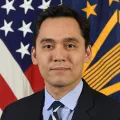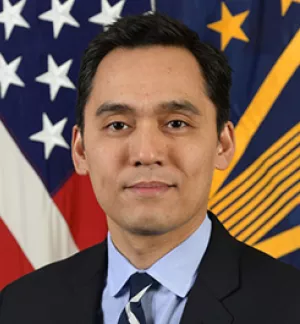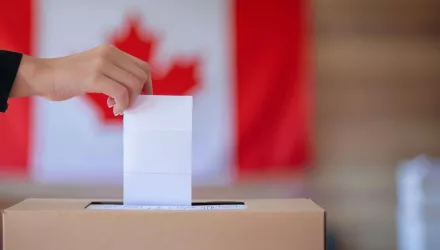A fierce debate surrounds the president's authorization of electronic surveillance, without court approval, of communications between suspected terrorists overseas and people inside the United States. Actually, two debates have emerged: one fiercely partisan, with some painting Democrats as weak on security and others claiming an out-of-control White House; the second over the relative constitutional prerogatives of the president, Congress and the courts.
Unfortunately, a third, and most critical, issue is being overlooked: how to fix outmoded rules for collecting and using intelligence so that Americans are safer from terrorism and secure in our civil liberties in a post-Sept. 11 world of globalization and global terrorism.
Coming debates won't help our nation if outdated and ineffective intelligence laws remain unaddressed. The current rules were developed during the Cold War, when our most dangerous enemies were foreign armies overseas. As a result, the rules sought to protect U.S. citizens from unreasonable search and seizure by requiring court authorization for eavesdropping that targeted the communications of "U.S. persons" (U.S. citizens and permanent resident aliens) or conducted "inside" the United States.
Unfortunately, the Internet, mobile phones and other technologies have rendered these rules unworkable. For example, if a Baltimore FBI agent monitors Internet conversations between a suspected terrorist in Bali and someone on a computer with a Boston IP address, and if the chat room is hosted by an ISP in Berlin, is the intelligence being gathered inside the United States or outside, and does it involve a U.S. person? Does it make sense for our security and civil liberties to hinge on technical distinctions that are increasingly tortured, hard to determine and less meaningful in today's world? Intelligence professionals have struggled to adapt Cold War-era rules to the modern realities of terrorism and instant global communications since before Sept. 11.
Outdated laws must not force future presidents of either party into a Hobson's Choice: allow an attack that might be detected by nimble eavesdropping — regardless of where or to whom it leads — or prevent the attack only to face charges of breaking the law.
Concerns over decisive speed in the war on terrorism are legitimate. Today's perceived threats to civil liberties will seem trivial compared to extreme measures that will tempt Congress and the administration if another attack claims not 3,000, but 30,000 or 300,000 American lives. On the other hand, the administration has pushed the legal envelope enough times — on detainees, interrogation and "Total Information Awareness" — to raise skepticism among national security stalwarts on both sides of the spectrum.
Re-evaluating arcane intelligence rules will not be compelling political theater, but it will address a root cause of the eavesdropping controversy. Congress and the administration must get past their constitutional power struggle and reach consensus on reforming our laws to provide all necessary tools to safeguard our security, but in a way that does not compromise our civil liberties. We believe these goals can — and must — be achieved simultaneously.
Solutions must achieve three key objectives:
Update the laws. Develop new intelligence-gathering rules that provide speed and flexibility to pursue terrorism-related leads with less reliance on location of collection or "U.S.-Person" status.
Protect civil liberties. Though our laws are outmoded, the civil liberties imperatives that drove them are as important as ever. New rules must provide protections for constitutionally protected civil liberties. They also must provide clear oversight, aided by robust technical and procedural audit mechanisms, to help rebuild lost trust in our government.
Ensure a role for the courts. To preserve and promote appropriate judicial oversight, new methods of court involvement must be considered. As one example, courts could pre-approve categories of electronic surveillance. This would allow the government to apply strict, pre-determined criteria to particular communications without the need for case-by-case court approvals. Categories, criteria and eavesdropping activity would be subject to regular re-examination, with approvals subject to periodic court renewals.
Correctly resolving the eavesdropping debate is crucial to our security and to maintaining trust between Americans and their government. "Political" victories — bloodying the president or painting Democrats as soft on terrorism — that ignore outdated intelligence rules will be dangerous for our nation. Nor is the answer to encumber future presidents with harsh new restrictions, or, at the other extreme, to grant them unfettered freedom of action. A real solution will be found only in fixing intelligence rules that were broken long before this eavesdropping scandal broke.
Bryan Cunningham served in national security positions under Presidents Reagan, Clinton and George W. Bush, serving as deputy legal adviser to the National Security Council from 2002 to 2004. Daniel B. Prieto previously served on the staff of the House Select Committee on Homeland Security.
Prieto, Daniel and Bryan Cunningham. “The Eavesdropping Debate We Should Be Having.” The Denver Post, February 5, 2006





